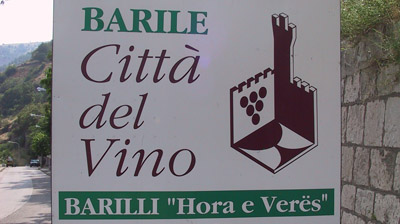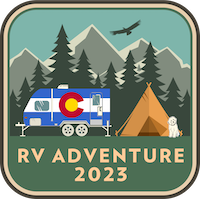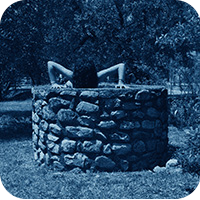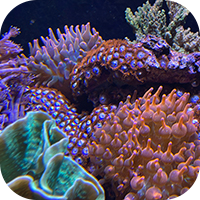Arbëreshë
A leading freedom fight dies in a war between faiths, west and east. Thousands of refugees flee to a neighboring country. Sound familiar?
This is Albania, 15th century. The Ottoman empire has amassed the largest army the world has known and is inching westward into Europe. The town of Krujë is under siege and has repelled two assaults under the command of George Kastrioti, known as Skanderbeg. During a third siege Skanderbeg succumbs to malaria. Krujë falls shortly thereafter and the Ottoman empire expands. Albania’s long resistance has given Vienna time to prepare, but the Turks are on the march.
In the next century nearly 300,000 Albanians fled their homeland, most to southern Italy. Modern Italy retains a link to Albania through the descendants of these refugees who established villages throughout the south. Barile, the birthplace of my great-grandparents, is one of these villages.
These Italians of Albanian descent are known as the Arbëreshë. They speak a language that’s basically unintelligible to modern Albanians (and of course Italians). It is the language of pre-Ottoman Albania, roughly equivalent to someone today speaking 15th century English in conversation. Despite not officially being classified as a protected ethnic minority in Italy, the Arbëreshë have retained customs and rites through to today, including a very peculiar singing style.

When I visited Barile in 1993 all the town signage was in Italian exclusively. In 2003 it was bilingual with Arbërisht underneath. I take this more as a tourist play than any kind of ethnic resurgence. Still, a good thing. As I’ve said before, the diversity of the south of Italy can be quite surprising, permitting glimpses into non-Roman cultures that you don’t find in the hills of Tuscany and alleys of Rome.
Of course, the struggles in Albania and the former Yugoslavia continue today. As does the exodus of refugees to Italy, particularly after the fall of communism. The most recent flight is excellently portrayed in the film Lamerica.
One response to “Arbëreshë”
Hi, I’m John Tolva!
The Ampcamper
How I hauled myself, two teens, an 80 lb dog, and a whole load of crap 4000+ miles across six states in twenty days using an electric vehicle. And survived to tell the tale.
The Terror Tourist
A roughly monthly exploration of places in horror fiction — real or imagined, geographical or psychological — culled from The Heavy Leather Horror Show. Subscribe to the podcast or the newsletter or just read through the archives.
Views From The Tank
Coral and fish photos, water chemistry data, and notes on home reef-keeping. Dive in.
Latest Photos
Marginalia
Stuff I’ve found interesting from around the web lately.
2024 Commencement Address by Roger Federer at Dartmouth
Tennis great-turned-philanthropist Roger Federer delivered the Commencement address at Dartmouth on June 9, 2024. The eight-time Wimbledon champion gave pointers on how to win at life. Federer received a Doctor of Humane Letters degree at the Commencement ceremony. More from our 2024 Commencement:
Deep-ocean floor produces its own oxygen
An international team of researchers, including a Northwestern University chemist, has discovered that metallic minerals on the deep-ocean floor produce oxygen -- 13,000 feet below the surface.
One Small Controversy About Neil Armstrong’s Giant Leap
When, exactly, did the astronaut set foot on the moon? No one knows. The Apollo 11 mission was, in most respects, a feat of extraordinary precision.
Welcome to Fright Club: How I Fought the Greatest Horror Movie Villains of All Time
The Ringer’s resident survivalist watched more than 200 horror movies to figure out the unimaginable: Could he take Freddy, Jason, and dozens of other villains one-on-one?
I Will Fucking Piledrive You If You Mention AI Again — Ludicity
The recent innovations in the AI space, most notably those such as GPT-4, obviously have far-reaching implications for society, ranging from the utopian eliminating of drudgery, to the dystopian damage to the livelihood of artists in a capitalist society, to existential threats to humanity itself.
The Lunacy of Artemis
A little over 51 years ago, a rocket lifted off from Cape Canaveral carrying three astronauts and a space car.
Hear the Song Written on a Sinner’s Buttock in Hieronymus Bosch’s Painting The Garden of Earthly Delights
There’s something unusually exciting about finding a hidden or discreetly placed element in a well-known painting.
The Cicada’s Love Affair With Prime Numbers
As far back as the seventeen-hundreds, fur trappers for the Hudson’s Bay Company noted that while in some years they would collect an enormous number of Canadian lynx pelts, in the following years hardly any of the wild snow cats could be found—until, some years later, when the trappers found th
On the Implausibility of the Death Star’s Trash Compactor
The Trash Compactor Debate turns on whether the Death Star ejects its trash into space. I, for one, believe it does. Though we never see the Death Star ejecting its trash, we do see another Empire ship, the so-called Star Destroyer, ejecting its trash into space.
When Do We Stop Finding New Music? A Statistical Analysis
I recently tried Spotify's new DJ feature in which an AI bot curates personalized listening sessions, introducing songs while explaining the intention behind its selections (much like a real-life disc jockey).














My email address: sishkon@gmail.com loosely means ‘how goes it’, what’s happening or how is it going. Modelled after the phrase ‘se si ashkon ajo’, ..
My parents were born in Barile. Immigrated to Canada in the 1950s. My parents taught me the language you describe as that of “pre-Ottoman Albania” as well as Italian. Their move out of Italy actually to an even greater extent froze them in time linguistically.
I hope there are forces acting to maintain this cultural heritage in Barile and other parts of Southern Italy and not just as a tourist attraction. It would be a shame if it was lost.